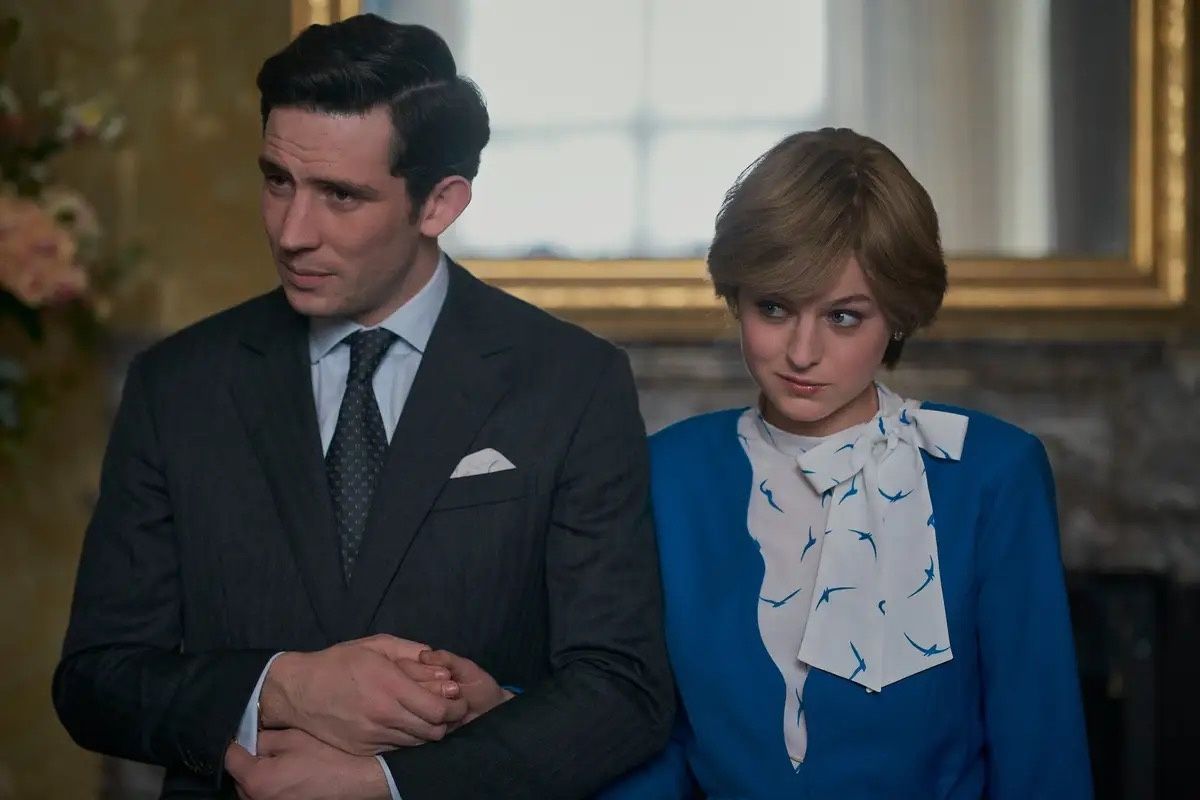'The Crown' is yet another depiction of insecure men being threatened by successful women
The Netflix series 'The Crown' is no stranger to controversy. What do you expect from a series depicting one of the most powerful families in the universe? However, last Sunday's release of the fourth season welcomed another set of controversy, primarily because of its introduction to the late Princess of Wales, Diana Spencer.
The new season follows Princess Diana (Emma Corrin) throughout her teenage years, to when she first meets Prince Charles (Josh O'Connor), to her adult years as a mother, when her tumultuous marriage to Charles begins to disintegrate. But perhaps Charles and Diana's marriage was doomed from the beginning, considering Charles was already in love with another woman.
As Diana mentioned in her infamous 1995 interview with the BBC, "there were three of us in this marriage, so it was a bit crowded."
Damn, you have to admire Lady Di's blatant honesty.
Throughout the new season (which I devoured in one sitting) among the many things that annoyed me were the overwhelming undertones of sexism. Predominantly pertaining to the portrayal of Charles' jealousy surrounding the vast attention Diana received over him.
During the overall series, we've seen Charles initially shown as the insecure golden boy of the Royal Family. Yet when Diana enters the picture, that all changes. In a reversal of roles, we witness Diana become the beloved favourite overnight, as shown when her and Charles embark on their Australian tour.
"She's made us both look like chumps," newly-elected prime minister Bob Hawke tells Charles in the series. "No offence, but if it'd just been you, I'd have got my wishes. But then she comes along!"
Hawke is referring to his plans on removing Australia from the monarchy as part of the Commonwealth and turning Australia into a republic. However, by the end of their Australian tour, the programme shows the country falling head over heels for Diana, resulting in Australia remaining within the monarchy.This of course, left the character of Charles feeling overshadowed.
Shocker. A man feeling threatened by a woman's success. What else is new?
However, this is not the first time in the series we witness a man succumb to jealously over a woman in a position of power. During the first and second season, we watch the Prince Phillip character gradually feel underwhelmed within Queen Elizabeth's shadow.
Men have felt intimated by ambitious women for years, primarily because it goes against their distorted vision of gender norms. You know, the whole "alpha male" bulls***? It's a complete contradiction. Society tells women we can have it all. We can be wives and mothers, while simultaneously having demanding, high-ranking careers.
However, the moment a woman's success begins infringing on her partner's success, that's when it becomes an issue. It's easy for men to say they're attracted to powerful women, but the moment our power overshadows theirs, the narrative suddenly alters. Women are told we can be as successful as we desire, but not too successful or we'll eclipse our partner's triumphs.
That is not equality. It's an infinite power struggle among the sexes.
This is misogyny in it's purest form.
Certain men, not all men, continue to believe women are meant for supporting roles. Anything more is a threat to their identity.
These are the moments I cringed throughout the new season. Especially while watching Queen Elizabeth (played the fabulous Olivia Coleman) turn a blind eye to Diana's unhappiness.
"Do you understand what it takes to make a marriage work? The respect one must show the other party. The blind eyes one needs to turn. The arrangements both of you must come to. The freedoms both of you must respect. And the rules you must abide by?" Queen Elizabeth's character mentions to both Charles and Diana during a confrontation.
So basically, what this show says is: if your monarch husband cheats on you, you must slap on a smile and suck it up. After all, the future of the crown depends on it.
If we want a progressive and modern society, we must change this patriarchal concept. But in order to do that, we have to address the fragile and toxic masculinity that underlines it.
- How much of The Crown is true? - Indy100 Conversations ›
- The Crown: Let's talk about the disclaimer argument - Indy100 Conversations ›
- The Crown: Let's talk about the disclaimer argument - Indy100 Conversations ›
- The Crown: Let's talk about the disclaimer argument - Indy100 Conversations ›
